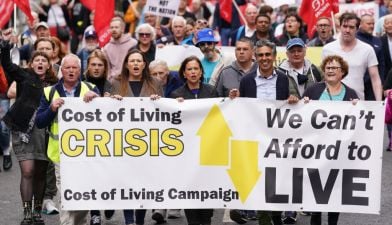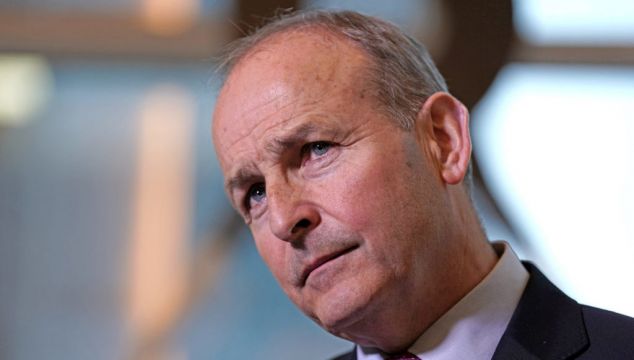The Taoiseach has said the country must wait until the next budget for the cost-of-living crisis to be comprehensively addressed.
Micheál Martin said the October budget will make a substantial difference to those experiencing economic hardship but all but ruled out further measures over the summer.
Speaking in the wake of several street protests over price rises, Mr Martin said the cost of living was not something that could be chased from month to month.
In an interview on Newstalk, Mr Martin said the summer economic statement would be the key next milestone in relation to the budget and the cost-of-living issue as it would “lay out what is available in terms of funds”.
The Government is soon set to publish the summer economic statement, a strategy for managing public finances. Some newspaper reports on Sunday suggested the Cabinet could soon approve a boost in social welfare and further measures to ease pressure on petrol costs.
However, the Taoiseach said more immediate measures were “not planned for now”.
“We are very conscious that we are dealing with a very uncertain situation. If you look even at the energy situation it is very, very bad for people out there because of the war in Ukraine and all that is happening around that,” he said.

“I am very conscious that the winter could be very challenging from an energy perspective and a cost-of-living perspective. So we need to work really on the evidence-based approach of the ESRI report that was published this week and look at targeted, and in some instances, temporary measures that will get us through this crisis for people.”
Asked about the housing crisis, the Taoiseach said: “We just are simply not building enough houses and we haven’t been building enough houses for the last five or six years. That’s the fundamental issue in terms of the whole housing situation in Ireland.
“Population is a big factor. The growth of the Irish population perhaps is something that hasn’t been taken into account across a range of public services and, in my view, the next census will reveal a significant population growth.”
He added: “We need to move significantly beyond the 20,000 figure [of new homes built annually] that we have at the moment – 20,000 last year, 24,500 at the end of this year. We have to get significantly above that to put a dent into this situation.”







